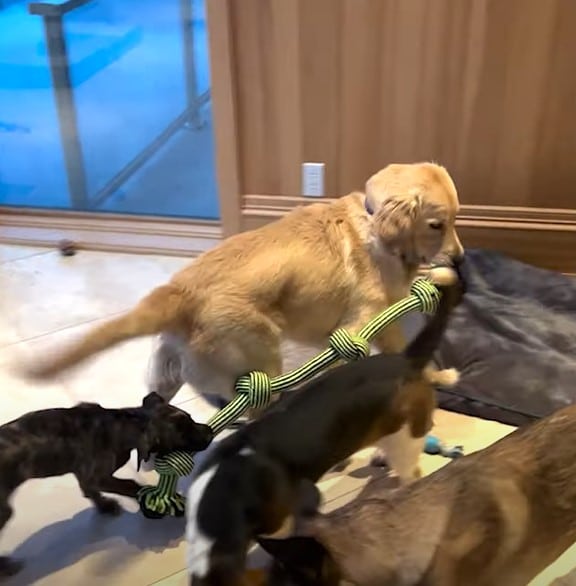Experts have issued a warning to locals 🚨 “DO NOT TOUCH” to residents after rabbits were spotted invading parts of the US with weird tentacles sprouting from their heads due!

Experts are sounding the alarm over a fast-spreading [vI.r.us]called cottontail [pa.pillo.mav.ir.us], which causes wild rabbits to [gr.ow] tentacle-like growths from their heads — and it could infect your pet bunny at home.
In Fort Collins, Colorado, residents have stumbled upon something straight out of a [ho.rr.or] film — wild rabbits with twisted, [te.nta.cle-li.ke] [gr.ow.ths] erupting from their faces.
Their [gr.ote.sque], antler-like protrusions seem to turn these normally harmless animals into [nightmarish] beings wandering the [fi.el.ds] and suburbs. But after the panic spread, wildlife experts stepped in with the truth: these eerie growths are caused by Shope [pa.pill.om.av.ir.us], a condition unique to rabbits — and despite their [te.rrif.ying] appearance, they’re harmless to humans and pets.

🚨 WARNING – DO NOT TOUCH! 🚨
Colorado Parks and Wildlife advises residents not to touch or handle these rabbits to avoid stressing the animals or potentially spreading the [v.I.ru.s] among rabbit populations. While the [gr.ow.ths] are generally benign, they can become problematic if they obstruct the rabbit’s mouth, nose, or eyes, and in rare cases, may turn [ma.li.gna.nt].
There’s no known cure, and surgical [re.mo.va.l] is sometimes an option for domestic rabbits. Sightings have been [reported] in Fort Collins, with some rabbits observed returning with worsening growths over multiple years.

If you see one:
• 🚫 Do NOT touch or try to help it
• 🐾 Keep pets and children far away
• 📞 Report the sighting immediately to local animal control or wildlife authorities
These animals are in [di.st.re.ss], but handling them without protective gear could put you at [se.rio.us ri.sk].
📍 Stay alert. Stay cautious. And if you see one — step back, not closer.




![HERO Labrador Retriever saved his teen Owner from Rattlesnake [at.t.ack]! – petcutes](https://animalpond.com/wp-content/uploads/2025/06/Hero-Labrador-retriever-saved-his-teen-owner-from-rattlesnake-attack-768x403.png)

